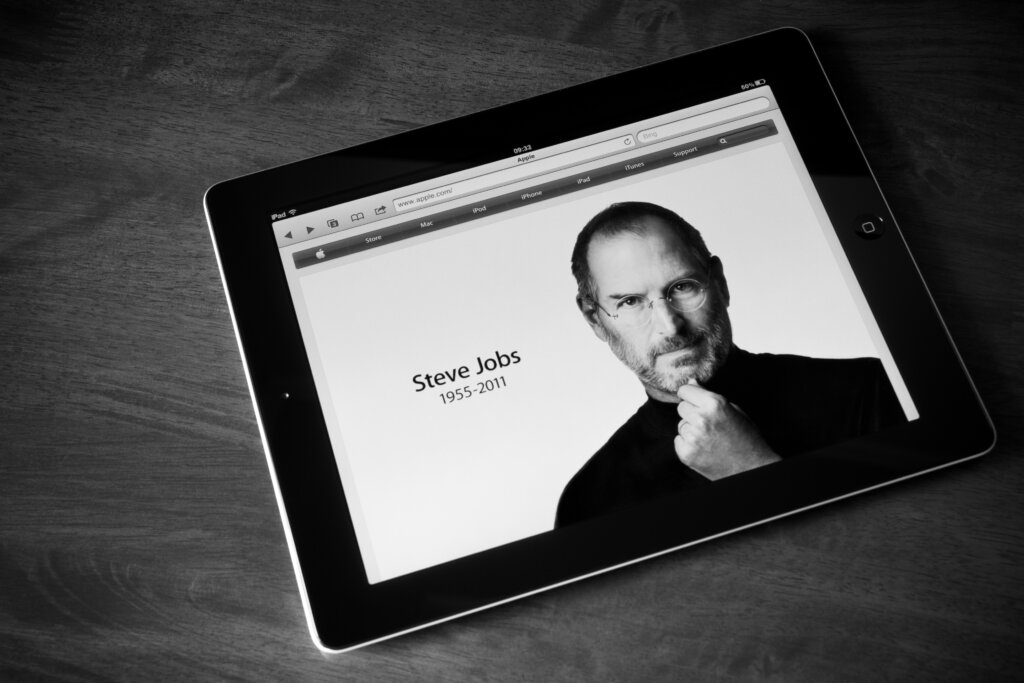
Corporate universities are a great way to increase employee retention —- here’s how six global companies are paving the path to success. Source: Shutterstock
Corporate universities a gateway to a career in tech
Article by Nathan Hew
Since its inception, corporate universities have been an effective model for businesses to ingrain the value of learning among employees even after they graduate from educational institutions. More importantly, McKinsey reports businesses are acutely aware of the importance of learning in today’s modern business environment — especially with the chatter surrounding artificial intelligence (AI) replacing traditional roles.
When pioneers such as General Motors and General Electric started offering standardized in-house training programs about 100 years ago, they focused on imparting lower-level, day-to-day skills.
In the 1900s, it would have been fanciful to imagine the full-fledged academics that would emerge in later decades — but corporate universities today have made their way into the 21st century. Think McDonald’s Hamburger University or true learning institutions for global corporations such as Apple, Google, Intel, and many more.
💼 Did you know Gen Z actually hates working from home?
You might assume that young professionals would be at the forefront of the push for remote work, but they’re actually the ones who are craving time in the office the most, @akiito7 writes. 👇https://t.co/43ZfP61HYC
— Insider Business (@BusinessInsider) July 13, 2022
Do Gen Z prefer corporate universities?
Those born between 1999 and 2010 have different needs. As a generation shaped by the digital age, climate anxiety, and most recently, COVID-19, they entered the workforce at an unprecedented time — most current entry-level talent has only ever worked remotely or in hybrid settings, according to Forbes.
Recent survey results, however, show that this generation of workers is eager to return back to the office. The biggest reason for this is physical interaction, which is where corporate universities or campus offices come into play.
Here are some of the biggest benefits businesses and employees enjoy when they establish a corporate university:
- Increased talent retention: Corporate universities increase potential employee retention by providing them with the chance to learn new skills and stay updated with industry trends.
- Attract top talent: Corporate universities help attract top talent by showcasing the company’s commitment to the professional development of its staff — a win-win combination for both employer and employee.
- Reinforces culture: A corporate university aligns with the brand and culture and helps solidify them across employees.
- Supports innovation: Corporate universities are breeding grounds for new thoughts and ideas since their structure fosters natural discussion and collaboration among students.
Googleplex, Apple University, Disney University: Six iconic corporate universities for employees
- Google’s Googleplex
Googleplex — Google’s Mountain View complex — might be the closest a corporate university has been to a traditional university experience.
Here, the magic of Google’s corporate learning happens. Employees can:
- Explore spontaneous interactions with each other as learners
- Enjoy the campus’ architecture, which embodies Google’s soul —made of its innovative brand and groundbreaking culture
- Spend up to 20% of the work week on pet projects that uplift their ambition to stratospheric levels
“We’ve always worked with people who were a mix of left and right brain,” says Clive Wilkinson, who designed Googleplex.
“But engineers are very left brain. They might work in teams, but they require a high level of concentration; they sit in front of the computer and crunch formulas in the most extraordinary way.”
Despite the fun, “it’s a very demanding work culture,” Andrew Laing of DEGW, a company that has done workplace research studies with other technology companies such as Microsoft, told Metropolis.
“It’s designed almost as a living environment — it’s much more like being at a university than being in a conventional work environment.”
- Deloitte University
During the 2008 recession, few tech companies were comfortable taking huge risks — but former Global CEO of Deloitte Barry Salzberg chose to move forward with two of the biggest investments in the company’s history.
One of them was Deloitte’s multi-million dollar learning facility, Deloitte University (DU).
Launched in 2011, the quarter-mile-long facility sits within the beautiful natural landscape of Westlake, TX, approximately 30 miles northwest of Dallas.
Here, programs are immersive, active, and led by Deloitte’s leaders. Outside the classroom, students are surrounded by emerging technologies so they can experience firsthand how technology is changing how we live and work.
For example, role-playing and case studies provide interactive sessions that engage learners and drive collaboration. A holographic concierge also provides directions and other information about the digital DU experience.

Apple University was established by Steve Jobs in 2008 to educate Apple staff of the company’s culture and history. Source: Shutterstock
- Apple University
The highly secretive Apple University, profiled in detail by the New York Times, was established by Steve Jobs in 2008 to teach staff what it meant to be an Apple employee — educating them about the company’s culture and history.
Courses are not required, only recommended, but getting new employees to enroll is rarely a problem.
A full-time faculty — including instructors, writers, and editors — create and teach the courses.
Some faculty members come from universities like Yale, Harvard, the University of California, Berkeley, Stanford, and MIT.
On an internal website available only to Apple staff members, employees could sign up for courses tailored to their positions and backgrounds, according to the New York Times.
One class, for example, taught founders of recently acquired companies how to smoothly blend resources and talents into Apple.
Another course, titled “What makes Apple, Apple”, analyzed the difference between the remote from Google’s failed TV initiative with its 78 buttons and the Apple TV remote, which has just seven buttons to teach the “less is more” approach Apple takes with most things, Guardian reported.
- Disney University
Disney’s corporate university is the learning and development setting that teachers and students dream of — it’s the Disneyland of education.
Although Disney University is not an accredited institution, courses are primarily designed, developed, and delivered by experienced learning professionals.
Everything here is highly personalized to the Disney brand.
From training materials to program names, Disney University reminds everyone about Disney’s incredible success over the years. The company’s university introduces the brand when onboarding employees on their very first workday.
Disney University offers instructor-led classroom sessions as well as e-learning and virtual classrooms.
The company has expanded its delivery methods to accommodate Disney’s diverse and growing audience, which includes Walt Disney World, Disneyland Resort, Disney Cruise Line, and many more.

Intel Network Builders University is a free educational resource for Intel partners, customers, and students interested in Intel technologies and digital transformation. Source: Shutterstock
- Intel Network Builders University
Intel’s University includes a vast collection of online content and incorporates face-to-face technical training. The online content supports virtual learning and has a global outreach.
It has a wealth of training content on key Intel technologies, pertinent presentations on industry trends, and the technical aspects of NAV deployments.
This dual-delivery approach supports distance learning and outreach to our global community through an easy-to-use website. It also fosters much-needed peer-to-peer engagement through in-person, hands-on workshops, and technical webinars.
This corporate University aims to boost the knowledge of professionals from the entire network industry.
That explains why it’s free, available to a public audience, and focuses on Intel technologies and digital transformation.
- Oracle University
Oracle University is the training and certification arm of Oracle.
The company provides the following features:
- Oracle Guided Learning: Realise your cloud application’s value faster with Oracle’s Digital Adoption Platform (DAP) Oracle Guided Learning.
- Oracle Cloud Learning Subscriptions: Build expertise using your cloud applications and services, stay updated with new product releases through real-time training, and practice what you learn through hands-on labs.
- Oracle Certification: Develop in-demand skills, validate your knowledge, and showcase your expertise by earning a globally recognized Oracle Certification.
A one-year subscription to either its cloud or technology courses is US$5,000.
With so many courses to choose from, we recommend you know the role and specialization you want to have.
If you’re interested in data science or data analytics, you’ll see loads of corporate jobs mentioning Oracle Database, one of the company’s key products.
READ MORE
- 3 Steps to Successfully Automate Copilot for Microsoft 365 Implementation
- Trustworthy AI – the Promise of Enterprise-Friendly Generative Machine Learning with Dell and NVIDIA
- Strategies for Democratizing GenAI
- The criticality of endpoint management in cybersecurity and operations
- Ethical AI: The renewed importance of safeguarding data and customer privacy in Generative AI applications
